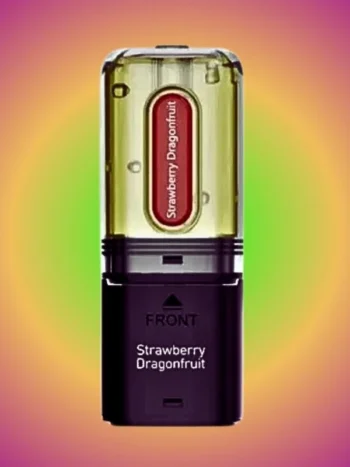Clearing the Air: Why Vaping Is Better Than Cigarettes

In today’s society, where the harmful effects of smoking are well-known and the desire for healthier alternatives is growing, vaping has emerged as a popular choice. Vaping offers a different experience and brings several advantages over traditional cigarettes. This article will explore the reasons why vaping is better than cigarettes, highlighting the benefits in terms of health impact, ingredients, secondhand smoke, nicotine content, disposable vape kits, convenience, cost, smoking cessation, regulations, social acceptance, and potential risks associated with vaping.
What is Vaping?
Vaping is the act of inhaling and exhaling vapor produced by an electronic device known as a vape or e-cigarette. Unlike traditional cigarettes that burn tobacco to produce smoke, vapes heat a liquid called e-liquid or vape juice, which usually contains nicotine, flavorings, and other chemicals. When the e-liquid vaporizes, it is inhaled by the user.
What are Cigarettes?
Cigarettes are tobacco products consisting of rolled-up tobacco leaves wrapped in paper. When lit, cigarettes undergo combustion, producing smoke that contains harmful substances such as tar, carbon monoxide, and various carcinogens.
Health Impact: Vaping vs. Smoking
When comparing the health impact, it becomes evident that vaping is better than cigarettes. Smoking cigarettes releases thousands of toxic chemicals through combustion, leading to severe health problems such as lung cancer, heart disease, and respiratory issues.
In contrast, vaping eliminates combustion, significantly reducing the exposure to harmful chemicals and potentially lowering the associated health risks.
Numerous studies have shown that vaping involves fewer harmful chemicals compared to smoking. While vaping is not completely risk-free, it is widely acknowledged by experts that vaping poses a lower health risk compared to smoking cigarettes.
This makes vaping a preferred choice for individuals concerned about the impact of smoking on their well-being.
Comparison of Ingredients
One of the significant differences between vape and cigarettes lies in their ingredients. While both may contain nicotine, vape juice provides a wider range of options in terms of nicotine concentration, allowing users to reduce their nicotine intake gradually.
Additionally, vape juice does not contain tobacco, eliminating exposure to many of the harmful substances found in cigarettes.
Cigarettes contain tobacco, which is highly addictive due to its nicotine content. In addition to nicotine, cigarettes contain various additives and chemicals that enhance flavor, burn rate, and overall smoking experience.
These additives contribute to the detrimental effects of smoking and increase the health risks associated with it.
Secondhand Smoke
The reduction in secondhand smoke is another significant advantage of vaping over smoking. Traditional cigarettes release smoke that contains harmful chemicals into the surrounding air, posing risks to non-smokers nearby.
Vaping, on the other hand, produces vapor that dissipates quickly and is generally considered to be less intrusive to others.
Secondhand smoke from cigarettes can have detrimental effects on the health of those exposed to it. It has been linked to an increased risk of respiratory problems, heart disease, and lung cancer in non-smokers.
Vaping, with its reduced production of secondhand vapor, provides a safer alternative for those concerned about the well-being of those around them.
Nicotine Content
Vaping offers users greater control over their nicotine intake compared to cigarettes. E-liquids come in various nicotine strengths, allowing individuals to choose the concentration that suits their preferences.
This feature is particularly beneficial for those looking to quit smoking or gradually reduce their nicotine dependency.
Cigarettes, on the other hand, contain a fixed amount of nicotine that is typically higher than what most vapers would consume. This makes it more challenging for smokers to regulate their nicotine intake and transition to lower nicotine levels.
Vaping offers the flexibility to adjust nicotine consumption gradually, making it a potentially effective tool for smoking cessation.
Read More: Does Vaping Make You Gain Weight? Nicotine For Weight Loss?
Convenience and Odor
Vaping provides a more convenient and odor-friendly experience compared to smoking cigarettes. Vapes are portable and easy to carry, allowing users to enjoy their vape breaks without the need for matches or lighters.
Moreover, unlike the solid and persistent odor associated with cigarettes, the scent from vaping is often more pleasant and dissipates more quickly.
The odor from cigarette smoke tends to cling to clothing, hair, and surroundings, which can be bothersome for non-smokers and may affect social interactions.
Vaping, with its wider variety of flavors and reduced lingering odor, allows users to enjoy nicotine without the same level of inconvenience and smell.
Cost Comparison
When considering the long-term cost, vaping can be more cost-effective than smoking cigarettes. While the initial investment in a vape device may be higher, the ongoing cost of vape juice and replacement coils is often lower than continually purchasing packs of cigarettes.
Cigarettes can be expensive, especially in regions with high taxes on tobacco products. The regular purchase of cigarette packs adds up over time, resulting in a significant financial burden.
Vaping, on the other hand, allows users to refill their tanks with e-liquid, which is generally more cost-effective compared to buying individual cigarette packs.
Smoking Cessation
Many smokers turn to vaping as a means to quit or reduce their cigarette consumption. The ability to customize nicotine levels in vape juice and the similar hand-to-mouth action can help alleviate nicotine cravings.
Vaping provides an alternative that mimics the behavioral aspects of smoking while reducing exposure to harmful substances.
It is important to approach vaping as a smoking cessation aid under the guidance of healthcare professionals. While it has shown promise in helping individuals quit smoking, the long-term effects and success rates of vaping as a cessation method are still being studied.
Vaping Regulations and Restrictions
Vaping is subject to regulations that vary from country to country and even within different regions. Governments and health organizations are actively developing policies and regulations to address the growing popularity of vaping and its potential impact on public health.
Users need to stay informed about the specific regulations in their area to ensure compliance and safety.
In some regions, vaping is subject to restrictions similar to those imposed on traditional cigarettes, such as age restrictions, marketing regulations, and bans in certain public spaces.
Vapers must understand and adhere to these regulations to promote responsible vaping and minimize potential risks.
Social Acceptance and Image
The social perception of smoking has undergone a significant transformation, with smoking becoming less socially acceptable in many communities. Vaping, while not entirely free from social stigma, is generally more socially acceptable due to its reduced health risks and milder odor.
The shift in social acceptance has resulted in an increasing number of vapers compared to smokers in certain age groups.
Vaping is often a more modern and technological alternative to smoking, appealing to those who value innovation and a healthier lifestyle.
Potential Risks of Vaping
While vaping is generally considered safer than smoking, it is important to acknowledge that it is not without risks. The long-term health effects of vaping are still being researched, and certain risks have been identified.
Some concerns include the potential for lung irritation, allergic reactions to certain ingredients, and the possibility of faulty devices causing harm.
Vapers need to be aware of these risks and make informed decisions about their vaping habits.
Choosing reputable brands, following proper usage guidelines, and staying informed about the latest research can help mitigate potential risks associated with vaping.
Conclusion – Why Vape is Better Than Cigarettes
In conclusion, vaping is better than cigarettes due to several factors such as reduced health impact, customizable nicotine levels, convenience, cost-effectiveness, and improved social acceptance.



Leave a comment
You must be logged in to post a comment.